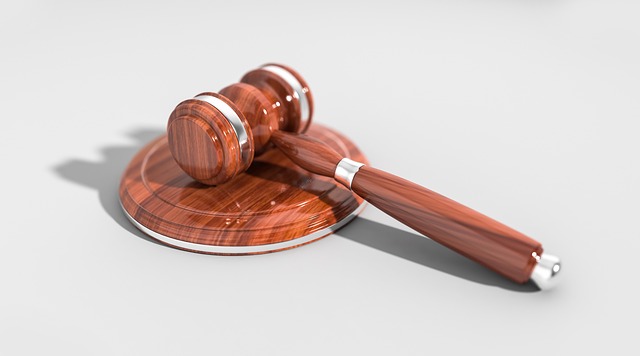Grandparent custody disputes arise when parents are unable or unwilling to care for their children, prompting relatives to seek legal custody. Grandparents can petition for custody or visitation if they can prove a strong bond and ability to provide a stable home. Courts primarily consider the grandchild's best interests, including physical and emotional well-being, stability, and existing relationships. Legal assistance is crucial for grandparents to navigate complex procedures, present their case effectively, and protect their rights while ensuring the best outcome for the child.
Grandparent custody disputes can be emotionally charged and complex, but legal assistance offers a path to resolution. Understanding the intricate web of rights and laws is crucial for grandparents seeking custody. This article guides you through the process, from recognizing valid grounds for legal action to navigating the steps involved in a grandparent custody case. We explore the role of legal professionals in advocating for the best interests of both grandparents and children, culminating in post-resolution support for a smooth transition.
- Understanding Grandparent Custody Disputes: Legal Framework and Rights
- When Grandparents Seek Custody: Grounds for Legal Action
- The Role of Legal Assistance in Resolving Disputes
- Step-by-Step Guide to Navigating a Grandparent Custody Case
- Post-Resolution Support: Ensuring the Best Interest of the Child
Understanding Grandparent Custody Disputes: Legal Framework and Rights

Grandparent custody disputes often arise when a grandchild’s parents, for various reasons, are unable or unwilling to care for their child, and relatives, especially grandparents, seek legal custody. Understanding the legal framework governing these disputes is crucial as it defines the rights and responsibilities of all parties involved. In many jurisdictions, grandparents have legal standing in such cases, meaning they can petition the court for custody or visitation rights if they can demonstrate a significant relationship with the child and their ability to provide a stable home environment.
The best interests of the grandchild are typically the paramount consideration for courts when deciding on custody. This includes factors such as the grandchild’s physical and emotional well-being, stability, and existing relationships. Legal assistance is invaluable in these situations, as it can help grandparents navigate complex legal procedures, present their case effectively, and protect their rights while ensuring the best outcome for the child.
When Grandparents Seek Custody: Grounds for Legal Action

When grandparents find themselves in a grandparent custody dispute, it’s crucial to understand the legal grounds for their action. Many countries and states have specific laws that recognize the rights of grandparents to seek custody or visitation rights if they can demonstrate a compelling reason. Common grounds include situations where the parents are unable or unwilling to care for the child, the child has been removed from the home due to neglect or abuse, or when the parent’s lifestyle poses a potential harm to the child’s well-being. These challenges often drive grandparents to seek legal assistance to navigate complex family law systems and fight for their rights as caregivers.
Grandparent custody disputes can arise from diverse circumstances, such as broken families, substance abuse issues, or parents facing unforeseen challenges that impact their ability to provide stable care. In such cases, grandparents may step up to fill the void, fostering a loving and supportive environment. However, securing legal recognition of their role and rights becomes essential to ensure the best interests of the child are at the forefront of any custody decision.
The Role of Legal Assistance in Resolving Disputes

When faced with grandparent custody disputes, legal assistance plays a pivotal role in navigating complex family law matters. Experienced attorneys specializing in family law can provide invaluable guidance to grandparents seeking either temporary or permanent custody of their grandchildren. They help interpret and apply relevant laws and regulations, ensuring that all parties’ rights are protected and considered fairly.
Legal professionals offer structured strategies tailored to each case, from gathering essential documentation to presenting compelling arguments before the court. Their expertise facilitates a more efficient resolution process, often leading to mutually agreeable outcomes. By leveraging legal assistance, grandparents can make informed decisions, avoid lengthy and emotionally draining litigation, and ultimately foster healthier relationships with their grandchildren while addressing their custodial concerns.
Step-by-Step Guide to Navigating a Grandparent Custody Case

Navigating a grandparent custody dispute can be complex, but with legal assistance, it’s possible to chart a clear course. Here’s a step-by-step guide designed to help grandparents understand and successfully manage their case.
First, consult with an experienced family law attorney who specializes in grandparent custody disputes. They can provide guidance tailored to your specific situation, explain the legal process, and help you gather essential documents and evidence. Next, prepare a detailed account of your relationship with the child and the reasons for seeking custody. This should include any history of caregiving, financial support, and significant milestones in the child’s life. During court proceedings, present this information clearly and persuasively to the judge. Remember to stay respectful and cooperative throughout, even if the other party is uncooperative, as this can positively impact the outcome.
Post-Resolution Support: Ensuring the Best Interest of the Child

After a grandparent custody dispute is resolved through legal assistance, providing ongoing support and guidance is crucial to ensure the best interests of the child are maintained. This includes regular check-ins with all parties involved, including the parents, grandparents, and the child themselves, to assess how the new living arrangements are working out. Psychologists or family therapists can play a vital role in this process by offering professional advice and helping to navigate any emotional challenges that may arise during the transition.
Additionally, legal professionals can provide post-resolution support by staying updated on relevant laws and regulations pertaining to grandparent custody disputes. This ensures that the rights of all parties are protected and that any future changes or adjustments in the child’s living situation are handled smoothly and fairly. Regular communication between the involved parties, with guidance from professionals, fosters an environment of stability and love for the child, ultimately contributing to their well-being and happiness.
